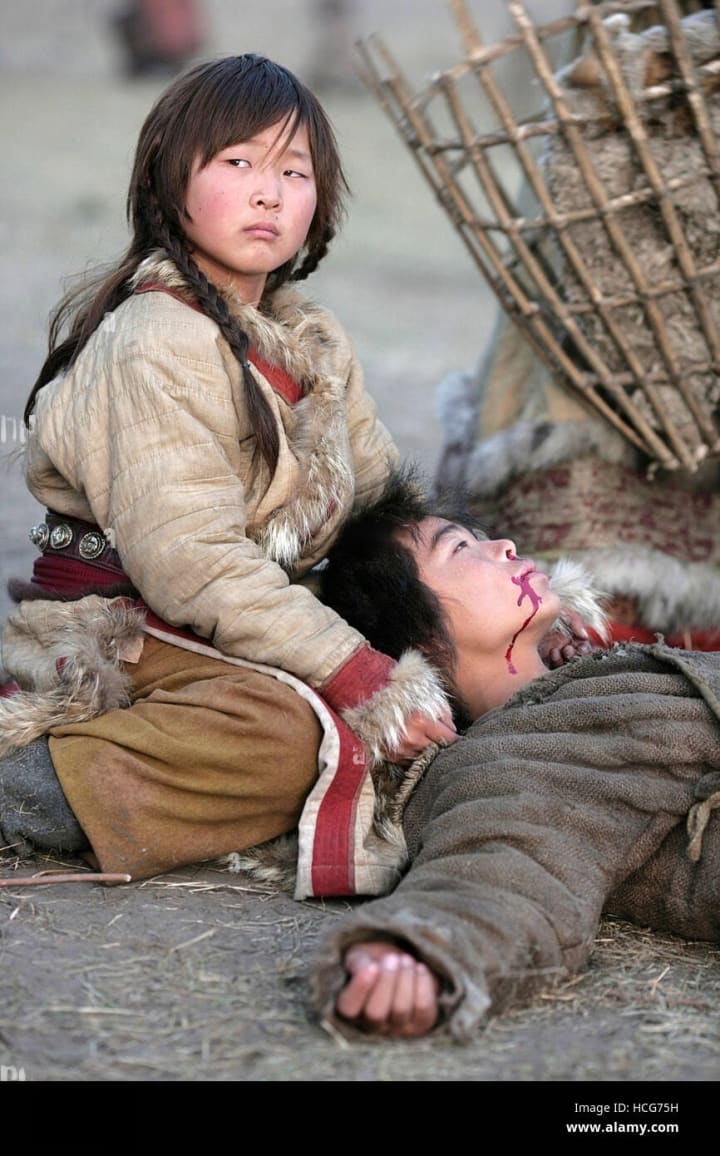Genghis Khan
The Legendary Conqueror who Forged a Vast Empire

Introduction to Genghis Khan
In the pages of history, few figures loom as large and awe-inspiring as Genghis Khan. Born as Temüjin amidst the unforgiving steppes of Mongolia in the late 12th century, his journey from an obscure nomadic boy to the founder of one of the most formidable empires in human history remains an epic tale of resilience and ambition.
Early Life and Rise to Power

Genghis Khan, originally named Temüjin, was born into the Borjigin tribe, part of the Mongolian nomadic society, in the year 1162. He hailed from a noble family, but his lineage did not guarantee him an easy life. Tragically, his father, Yesugei, was poisoned when Temüjin was just nine years old, leaving the family vulnerable. After his father's death, the young Temüjin, along with his mother Hoelun and his siblings, faced the harsh realities of life on the Mongolian steppes.
In the absence of a centralized authority, the Mongolian tribes were frequently embroiled in conflicts, vying for supremacy and scarce resources. The loss of Yesugei thrust the family into a precarious situation, leading to their expulsion from their tribe. This exile marked a turning point in Temüjin's life, as he learned to navigate the challenges of survival in the unforgiving wilderness.
Temüjin's rise to power began with a determination to reunite his scattered family and establish a sense of unity among the Mongol tribes. In 1186, he married Börte, a marriage that not only solidified an alliance with the Onggirat tribe but also symbolized the first steps towards forging political alliances. Through strategic marriages and alliances, he steadily gained the support of various Mongol clans, gradually consolidating his power.
Military Tactics and Conquests
As Genghis Khan's power grew, so did his reputation as a military genius. He revolutionized warfare through a series of innovative tactics. The legendary Mongol cavalry, renowned for their exceptional horsemanship, became the backbone of his formidable army. Swift and agile, the cavalry's mobility allowed them to strike with precision and outmaneuver larger enemy forces.
Genghis Khan's military brilliance extended beyond traditional battlefield tactics. He was an adept strategist, utilizing psychological warfare and surprise attacks to unnerve and demoralize his adversaries. He often employed diversionary tactics, drawing enemy forces away from their strongholds, only to attack their vulnerable flanks.
Genghis Khan's Leadership Style

As a leader, Genghis Khan was charismatic and decisive. He promoted a culture of meritocracy, rewarding talent and loyalty above all else. He recognized the potential in individuals from diverse backgrounds, elevating them to positions of authority based on their abilities rather than their social status.
Genghis Khan valued loyalty among his warriors above all else. To instill unwavering devotion, he emphasized a code of discipline and unity. Harsh punishments awaited those who betrayed the trust of their brethren. On the other hand, loyalty and valor were richly rewarded, resulting in a sense of camaraderie and brotherhood among his soldiers.
To further cement loyalty, Genghis Khan offered a level of religious tolerance unprecedented for his time. He respected and accommodated the beliefs of his subjects, recognizing the power of religious unity in governing such a diverse empire. This approach garnered loyalty from individuals of various faiths, fostering a sense of inclusivity within his realm.
Misconceptions Surrounding Genghis Khan
Genghis Khan's legacy is often marred by misconceptions, primarily due to biased historical accounts and rival empires' propagandas. While he was undoubtedly a fierce conqueror, his rule was not solely marked by brutal conquests. Rather, he established a legal code known as the Yassa, promoting justice and fairness within his empire. Additionally, the image of the Mongols as rampaging barbarians disregards their contributions to trade, arts, and sciences during the Pax Mongolica.
Genghis Khan's Descendants
Genghis Khan's lineage endured through his many descendants. His grandson, Kublai Khan, went on to found the Yuan Dynasty in China, becoming its first emperor. The Mongol Empire began to fragment after Genghis Khan's death, leading to the establishment of several smaller successor states, each governed by his descendants.
Genghis Khan's Impact on the World
The Mongol Empire, under Genghis Khan's rule, facilitated the exchange of goods, ideas, and knowledge along the Silk Road. This interconnected network of trade routes catalyzed the emergence of a more interconnected world, ushering in an era known as the Pax Mongolica. The empire's reach also allowed for unprecedented cultural exchange, influencing societies far beyond its borders.
About the Creator
Écrivain Placard
Curious reader and researcher, always exploring the lesser-known corners of the world. Sharing obscure findings and insights with fellow knowledge-seekers. Never satisfied with the obvious, always digging deeper for the truth.






Comments
There are no comments for this story
Be the first to respond and start the conversation.